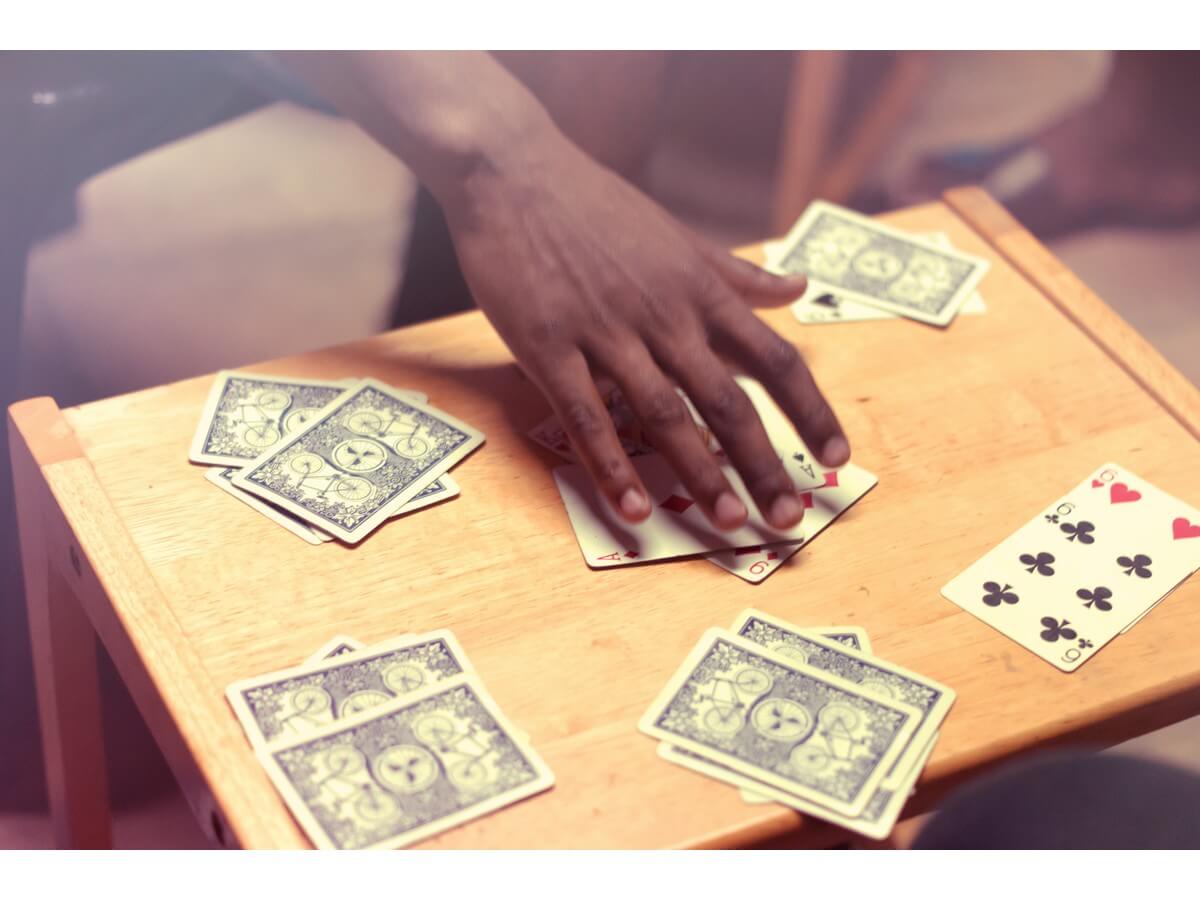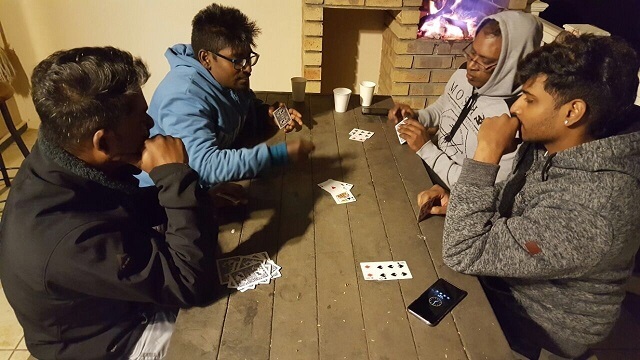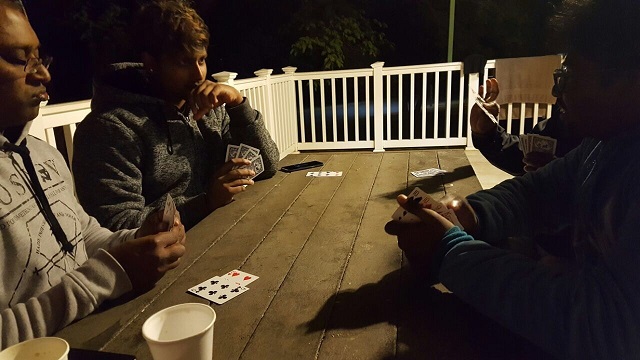
THUNEE – A South African game of strategy, teamwork and competitive spirit
Thunee is a card game played by South African Indians, named after the Tamil word for 'water’. It is believed to have been developed by Tamil South Africans. It even has it's own Wikipedia page and can now be played online. Legend goes that the game was invented by indentured labourers as they crossed the waters from Asia to Port Natal. Here in South Africa, the game is played with great veracity and there are even tournaments held here. Every social gathering includes a ‘thunee-pack’ which consists of the ace, king, queen, jack, ten, nine and the sixes for keeping the score.

The strategising and deep concentration of a thunee game during a social gathering
The game cuts across social classes and is played mainly by South Africans of Indian origin. People that I’ve spoken with have fond memories of playing this game at school or university. Now, as adulthood has set in, they play it at ‘braais’ (barbeques) or family functions.
I often get asked, “Do you play thunee?” My answer is that I know the game but I’m not good at playing it at all. It is usually enjoyed with four players, in partnership of two, although a game with six players can also take place. There is a dealer, a cutter, a trump setter and the partner of the dealer draws the first card, twelve points to score and losers deal.
Loud screams of ‘jodie’, 'khanaak’ and voracious debates around card counting take place. If someone is caught cheating they can be four-balled. I asked around to find out why this game is such fun and here are some of the responses:
Kylan Soobramany, a 21 year student says, “The game is about strategy and teamwork. I also enjoy the family bonding and for me it is so interesting to see how your family and friends think and operate during the game. It can be such fun.”
31-year old corporate trainer, Seshen Reddy says, “I love the game because it brings out the competitive spirit and is very much about winning by outsmarting your opponent. It is all about the luck of the draw because you never know what cards you are going to get.”
Deon Papiah, Production Manager in Johannesburg, takes part in an annual thunee tournament that has about 64 teams of two players each. He had this to say, “It is my second tournament and it’s quite exciting to win. The social element is great as we make friends and network while having a few beers. Some people team up with their partners which is great. The tournament I attend has an amazing prize money of R25 000 and this is also a motivating factor to win.”
The game is not only for boys. Many girls play Thunee very well too. It is clear that this card game is a tradition that was passed on from our ancestors who came to South Africa as indentured labourers. As a result, this game has become quite entrenched into the South African Indian culture.

Discontent over the cards drawn
It would be very interesting to know if this game, or variations thereof, are played in other parts of the world by the Indian/Tamil diasporas. There are sentiments that the game is so much a part of our culture, like a spicy fish curry, that in South Africa we have stopped questioning it's roots. Only time will tell if this card tradition will continue to be upheld by future generation, or will it die out as some other cultural practices. I certainly hope that tournaments such as the one Papiah attends will keep this tradition going as long as possible.
Related articles:
























